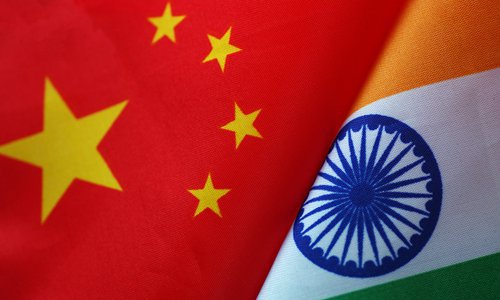HOME >> BUSINESS
China-India talks key to success of RCEP negotiations: experts
By Chi Jingyi Source:Global Times Published: 2019/10/15 21:16:09

File photo: IC
The key to the success of Regional Comprehensive Economic Partnership (RCEP) negotiations now lies in the talks between China and India, and the latter is more likely to cut tariffs gradually than make drastic reductions, analysts said.
Chinese State Councilor and Foreign Minister Wang Yi said on Sunday that the leaders of China and India agreed to work with other related parties to strike an RCEP agreement as early as possible.
The Economic Times on Monday cited an unidentified source who said that India is expected to join the RCEP despite domestic concerns, and these issues need to be resolved by October 22.
The RCEP talks are being held among the 10 members of the Association of Southeast Asian Nations (ASEAN) and their six trade partner countries, which have existing free trade agreements (FTAs) with ASEAN.
"The RCEP negotiations are now in the final and the most difficult stage because one of the most difficult parts lies in tariff cuts and the reduction of non-tariff barriers between China and India," Zhao Gancheng, a research fellow at the Shanghai Institute for International Studies, told the Global Times on Tuesday.
According to China's Ministry of Commerce, more than two-thirds of RCEP's bilateral market access negotiations were concluded in April. All parties have reached agreement on more than 80 percent of the protocol.
"The most favored nation import tariffs applied by India are as high as 13.8 percent and India's average bound tariff rate is 48.5 percent, according to the WTO. Whereas China's average tariff is 7.5 percent at present, and other member countries like Australia and Singapore have very low tariffs. If an RCEP agreement is reached, India will have to make huge tariff reductions," said Zhao.
"RCEP is a multilateral cooperation and will build a free trade area, where tariffs among member states should be the same. India is unlikely to cut its tariffs in a single step but gradually," Dai Yonghong, a professor and academic member of the China Center of South Asia Studies at Sichuan University, told the Global Times on Tuesday.
Dai said that "India's manufacturing industry and its competitiveness are weak. If India cuts tariffs too drastically, it will face great pressure."
The RCEP will cover 47.4 percent of the world's population, nearly 32.2 percent of global GDP, about 29.1 percent of world trade and 32.5 percent of global foreign direct investment, according to statistics.
"Tariff reductions are not a problem for China, because China's average tariff level is low in comparison with developing countries and can match some developed countries. Therefore, India's attitude is very important to conclude the RCEP agreement," Zhao added.
Posted in: ECONOMY